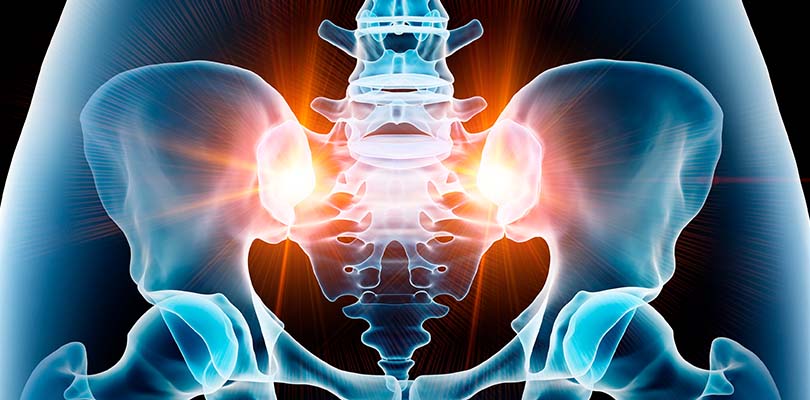Photo Credit: PeopleImages / iStockPhoto.com
What You Need to Know About Colon Cancer
Colorectal cancer, more commonly known to the public as colon cancer, is the second leading cause of cancer-related deaths in the United States among cancers that affect both genders. It doesn’t have to be — nine out of 10 people who are diagnosed early and received early prompt treatment are still alive after five years.
Knowing this, why are so many people not receiving proper cancer screenings and ignoring the warning signs of colon cancer?
Just the Facts
According to the American Cancer Society, in 2014, an expected 136,830 new cases of colon cancer were to be reported in the U.S., with an estimated 50,310 deaths directly related to colon cancer.
Colon cancer incidence and mortality rates are highest in the African American population, for both genders. Diagnosis of colon cancer is 25 percent higher and mortality rate is 50 percent higher than Caucasians.
In all sexes and ethnicities, it is most common over the age of 50.
Although the rates for cancer screenings have increased, they are not what they need to be. Per the CDC, in 2014, 65.7 percent of U.S. adults were up-to-date with colon cancer screening, seven percent had been screened but were not up-to-date, and 27.3 percent had never been screened for colon cancer.
Colon Cancer Symptoms
Hopefully a routine colon cancer screening will detect precancerous polyps before they become cancer and no symptoms are experienced. However, knowing the symptoms of colon cancer is important and can be life-saving.
Colon cancer symptoms include:
- Blood in the stool along with rectal bleeding
- Cramping, pain or chronic abdominal bloating
- Diarrhea, constipation or “narrow stools” for more than a few days, especially if this is not the norm
- Feeling the urge to have a bowel movement, without feeling relief after having a bowel movement
- Unexplained weight loss, fatigue and weakness
Colon Cancer Screening
Screening for cancer can save lives — routine screenings can detect cancer before it is cancer, when the growths in the colon or rectum can be termed precancerous polyps. If the screening detects cancer, it is likely to detect it in the early stages when it can be easily treated.
Precancerous polyps can take 10 to 15 years to develop into colon cancer, which allows for plenty of time for screening to be performed. Generally, screenings are recommended to begin at the age of 50, but may begin earlier based on family history.
Screening Procedures
There are a variety of screening tools used to detect colon cancer. The most basic is a colonoscopy, which is done on a routine basis after the age of 50.
Tumors can either be cancerous (malignant) or noncancerous (benign). Learn about the differences and more information on benign vs. malignant tumors.
A colonoscopy can detect both polyps and cancer, in addition to looking at the structure of the colon for abnormal areas. It also has the benefit of being able to remove precancerous areas, thus preventing cancer.
A sigmoidoscopy is another option. The benefit of a sigmoidoscopy is that it doesn’t require sedation under normal circumstances, whereas a colonoscopy does. However, it can only look at the rectum and the lower part of the colon.
A double-contract barium enema (DCBE), also called a lower GI series, is an X-ray performed with barium. The barium will allow for an outline to be shown on the X-ray and abnormal areas will show up. If there are abnormalities, a colonoscopy will be performed.
A CT colonoscopy is basically a colonoscopy performed using computed tomography. The CT equipment allows for many images to be taken.
This is often desirable because it is less invasive — however, if a suspicious area is found, a regular colonoscopy is indicated.
Stool tests can also be performed; they can detect cancer but will not detect precancerous polyps so routine cancer screening is still indicated to prevent colon cancer.
Colon Cancer Prevention
The best thing that can be done to prevent colon cancer is to have regular cancer screening tests after the age of 50. This will detect precancerous polyps and allow for their removal before they become cancer.
Aside from that, experts debate on what can be done to prevent colon cancer.
There have been compelling studies linking diets high in red meat and colon cancer.
A study performed in Europe in 2005 tracked 478,000 men and women. It was found that those who consumed five or more ounces of red meat per day were up to 33 percent more likely to develop colon cancer.
This fact is yet to be proven, but reducing red meat in the diet can’t hurt.
Research has found that people suffering with type 2 diabetes and irritable bowel disease are at a greater risk for developing colon cancer. Although this is a non-modifiable risk factor, keeping these diseases under control may be helpful.
For those suffering with these diseases, it may be prudent to begin cancer screenings before the age of 50.
Experts don’t agree on a specific diet for preventing colon cancer, but a diet that prevents cancer in general and other comorbidities may be helpful. This diet is high in fruits and vegetables and whole grains and low in animal fats.
It has also been found by the US Preventive Services Task Force that a baby aspirin daily prevents cardiovascular disease and colon cancer.
The bottom line — the best way to prevent colon cancer is routine screening, which is an underutilized tool in the U.S.







